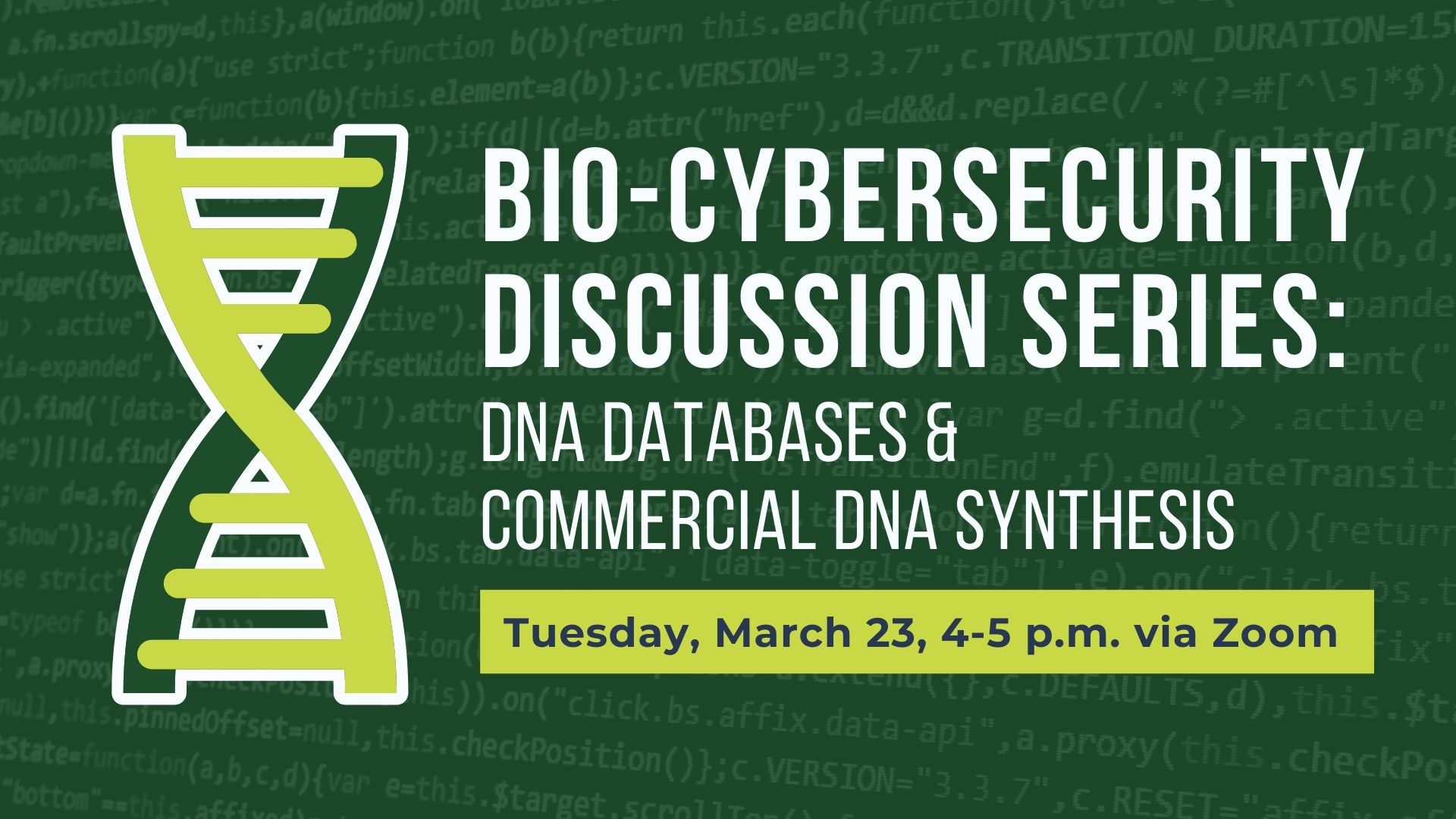
As the era of biological innovation unfolds and more bio-based products are developed and manufactured, there is a new awareness of the vulnerability of the growing bio-economy to cyber attacks.
During the COVID-19 pandemic, there have been reports of increasing cyber threats to SARS-CoV-2 research databases and manufacturing operations. These follow an increasing frequency of ransomware threats to hospital systems and known vulnerabilities to operating systems for research and industrial equipment used in critical life sciences discovery and manufacturing. These threats apply across all areas of the bio-economy, including production of therapeutics, vaccines, chemicals, energy, and agriculture.
“CSU is uniquely positioned to explore the vulnerabilities of life sciences and the bio-economy to increasing cybersecurity threats and to develop solutions. We have unique assets in biomanufacturing and large databases of discovery research in infectious disease, climate, and agriculture,” said Alan Rudolph, vice president for research. “Addressing these challenges will require multidisciplinary research collaboration and new educational efforts.”
Discussion series
To further inform the CSU community and the public about bio-cybersecurity issues and opportunities for research and education, the Office of the Vice President for Research will host a bio-cybersecurity discussion series with short presentations by experts from academia, industry, and government. This forum will allow for increased awareness of bio-cyber threats and encourage discussions on paths forward for our community.
“Cybersecurity is a growth area for our campus and increased funding from the federal agencies is expected, given the rising use of integrated data and its vulnerabilities,” said Rudolph. “The life sciences community is particularly vulnerable, and CSU researchers are well placed to aid in identifying solutions for this growing problem.”
Each discussion will focus on a key element of bio-cybersecurity: DNA databases and commercial DNA synthesis; biomanufacturing; and bioprocess and product information databases.
The organizer of the discussion series, Ken Reardon, professor of chemical and biological engineering and the Jud and Pat Harper Chair of Chemical and Biological Engineering, noted that the experts participating in the panels reflect the broad relevance of bio-cybersecurity concerns.
“We are fortunate to have some of the most knowledgeable people in the country join us for these panels,” he said. “They come from CSU and other universities, industry, and government to share with us their perspectives on these issues and to discuss some potential solutions.”
First topic: DNA synthesis
The first discussion, on the topic of DNA synthesis, will take place on March 23, 4-5 p.m., via Zoom. The panel will examine the risks of attacks on DNA databases and our current strategies to block DNA procurement for malicious purposes.
Registration is required. This event will not be recorded.
- Moderator:
- Rebecca Moritz, Biosafety Director at Colorado State University
- Speakers:
- Susan Cropp, Weapons of Mass Destruction Directorate, Countermeasures and Mitigation Section at the FBI Headquarters.
- James Diggans, Distinguished Scientist of Bioinformatics and Biosecurity at Twist Bioscience
- Jean Peccoud, Professor of Chemical and Biological Engineering at Colorado State University
Second Topic: Bio-manufacturing
The second event, on April 6, 4-5 p.m. via Zoom, will cover bio-manufacturing. As manufacturing operations are increasingly networked, this discussion will look at the risks that a controller or sample analysis instrument could be attacked and manipulated by outside entities.
Registration is required. This event will not be recorded.
- Moderator:
- Ken Reardon, professor and associate head of the Department of Chemical and Biological Engineering at Colorado State University
- Speakers:
- Charles Fracchia, CEO and co-founder of BioBright
- Lucas Hartsough, senior design engineer at Ginkgo Bioworks
- Corey Hudson, manager of the Computational Biology and Biophysics Department at Sandia National Laboratory
Third Topic: Databases
The final discussion will examine databases on April 20, 4-5 p.m. via Zoom. Companies and universities store valuable data on processes and products, including vaccines, which are under development or in production. This event will examine how that information in these databases be protected from outside entities.
Registration is required. This event will not be recorded.
- Moderator:
- Indrajit Ray, professor of computer sciences at Colorado State University
- Speakers:
- Glenn Gaffney, Executive VP and senior fellow at In-Q-Tel
- Sonia Hunt, Weapons of Mass Destruction Directorate, Countermeasures and Mitigation Section with the FBI.
- Gigi Kwik Gronvall, senior scholar at the Johns Hopkins Center for Health Security and an associate professor in the Department of Environmental Health and Engineering at Johns Hopkins University